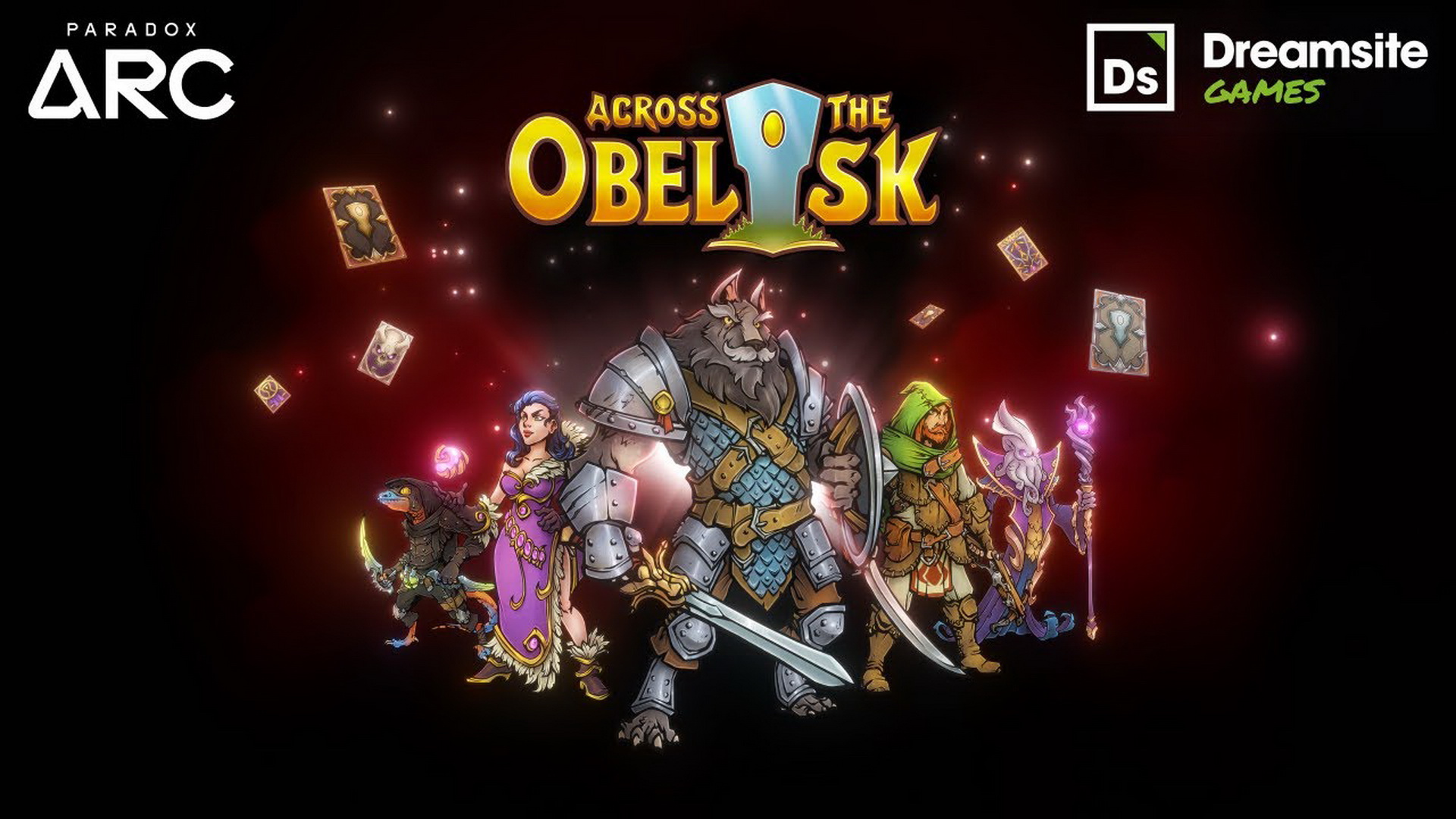Across the Obelisk
Developer: Dreamsite Games
Publisher: Paradox Arc
Platform: Linux, Mac, Windows
Release Date: 16 August 2022
Price: $19.99 USD/$28.95 AUD – Available Here
Video Review
Overview
Across the Obelisk is a roguelite RPG deckbuilder. Players will guide one of the many adventuring parties entering a mysterious forest in hopes of saving the princess and netting a huge reward. The game offers solo and co-op gameplay, 16 unlockable characters, and over 500 cards and items.
Story
Roguelites are traditionally weak on story while RPGs are usually story rich. Across the Obelisk is somewhere in the middle. It’s roguelite nature means the individual storylines are abbreviated, more focused on random one-time events that litter the game. It is nice to see the character quests and dungeons provide a little more meat, even if it simply extends the sub-plots to two or three events.
The writing is short and to the point. It strikes the right balance of serious content with a dash of humour thrown in to keep things light.
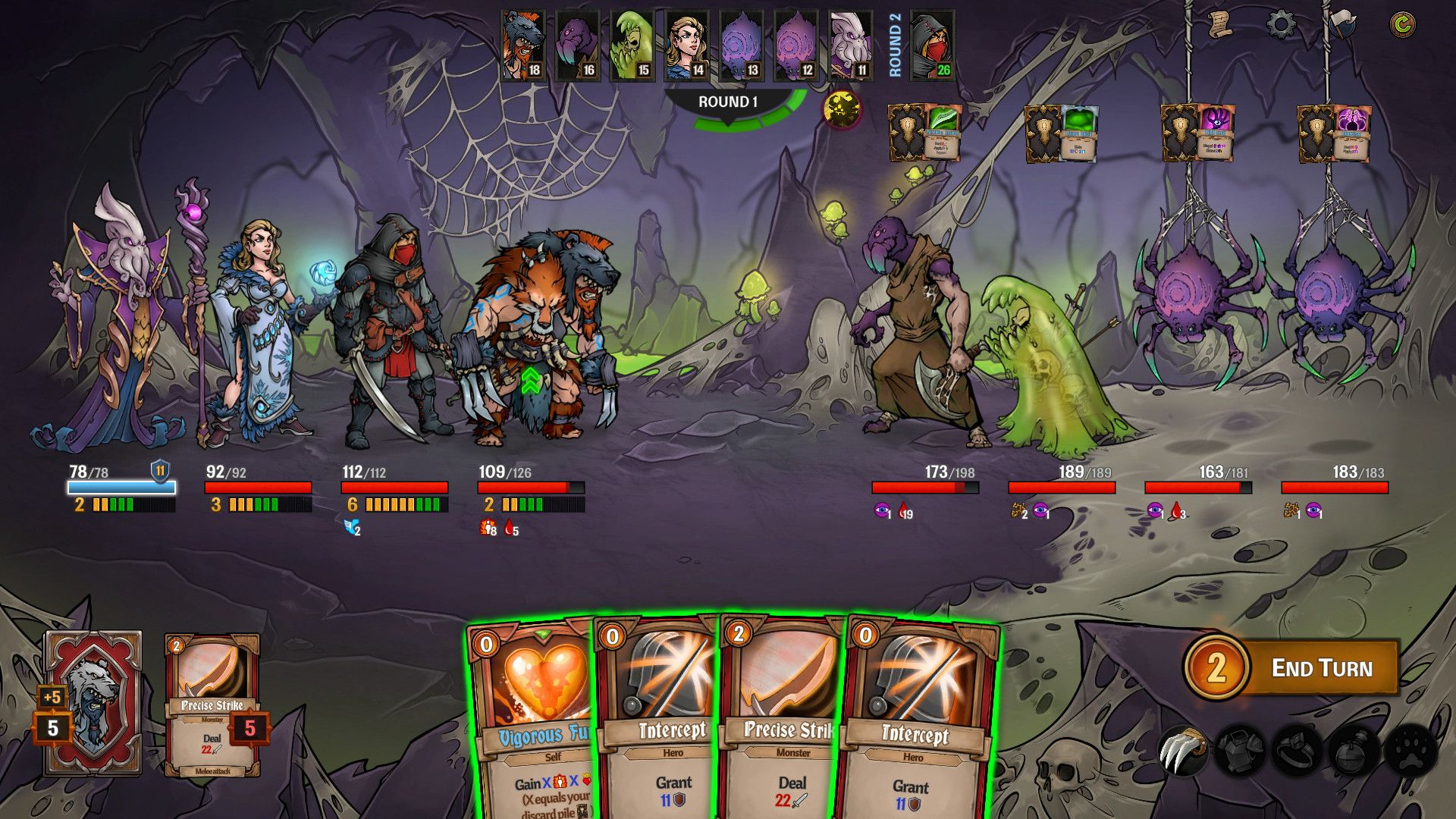
Gameplay
The deck building gameplay is excellent. Every character has a starting deck of 15 cards. New cards can be selected as rewards after each combat encounter. Players can also further customize their deck in the town located at the start of each map. There, players can remove, add, or upgrade cards in exchange for gold and shards earned over the course of the game. For the most part, the cards are well designed. There’s lots of opportunities for creative combinations, and most cards feel like they have some usable purpose. There are a few duds though, and sadly some of those cards have found their way into the starting characters’ decks. Reginald is a good example as I can’t imagine anyone bothering with Foresight and Healing Rain is a horribly inefficient use of deck space.
The map design is excellent. Across the Obelisk is built around sprawling maps with plenty of branching paths and side areas to explore. There are dungeons and character quests spread around the map that gives a chance to make runs with specific objectives in mind, whether it’s to unlock a new character or focus purely on beating the game. The events feel meaningful as there are some nasty consequences for failing. It’s great that the game provides the probability of success for actions relying on chance as failure often adds a debuff card to the deck.
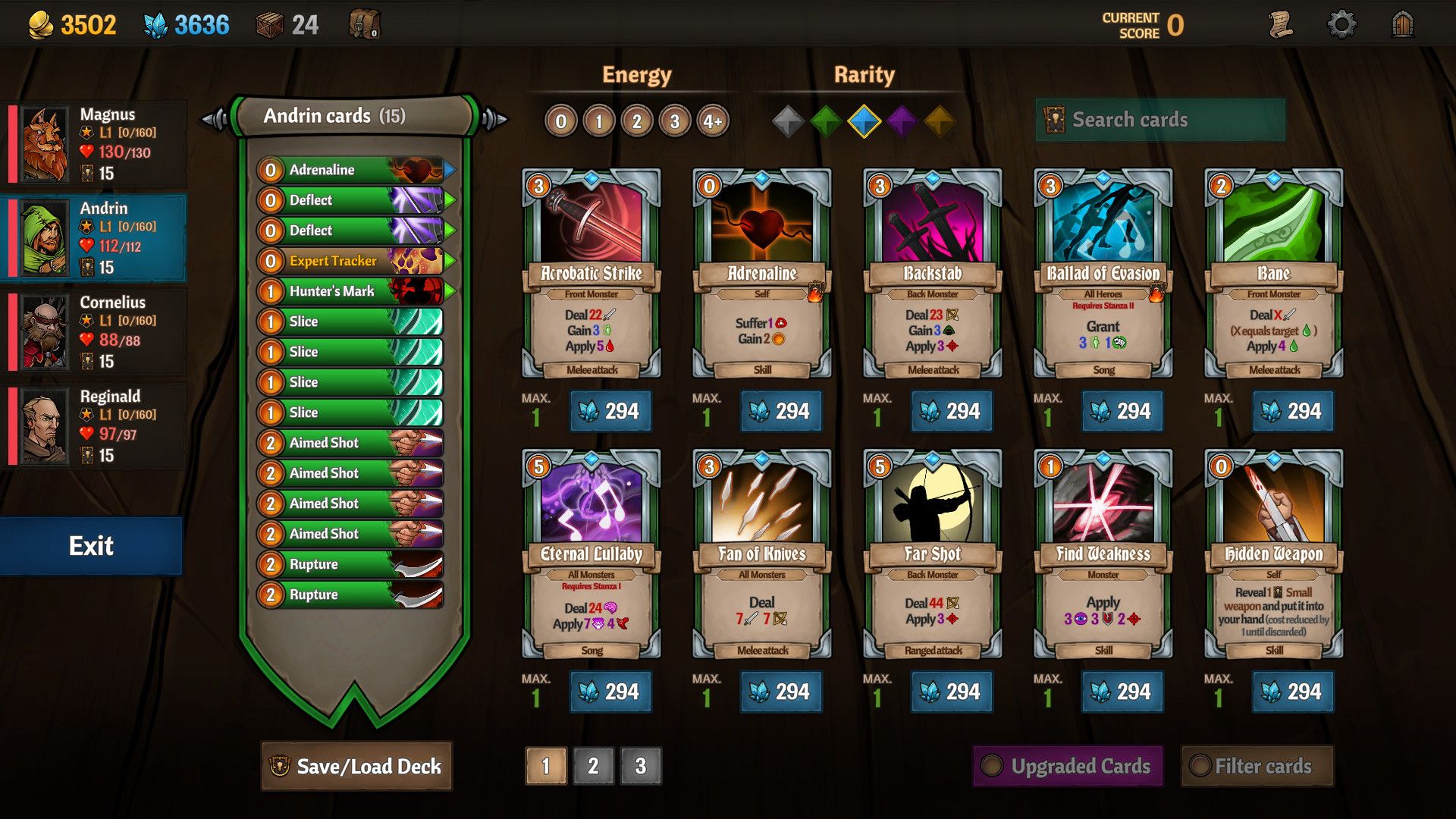
The game’s RPG elements will feel familiar to anyone who has played a fantasy RPG before. The classic tank, healer, caster DPS, and physical DPS roles are present. There are also two separate levelling trees. The perk tree is permanent and carries over between games. This tree is focused on improving existing stats or increasing starting gold and shards. The trait tree resets each time players start a new run. This tree lets individual characters specialize in a role by doling out powerful, character exclusive cards and abilities. This tree is the most interesting part of the game’s RPG mechanics as it provides some intriguing options that can create potent synergies with the right decks. As a result, each level up in this tree feels like a big, satisfying power spike.
The status and resistance systems are one of the best parts of Across the Obelisk. There are plenty of status effects, and they can snowball into a nasty avalanche in either direction, so managing status effects is a big part of the strategy. Individual resistances are closely tied to the status effects, so exploiting openings created by resistance weakening status effects will be part of any good strategy. The sight status is one of the few duds in the game. It seems like a complete waste of space as its very difficult to take advantage of knowing what cards will be played against you. A lot of cards hit random targets, and it’s hard to mount a proper defence when there are four potential targets. This system is better left to deck builders that have one target or a more predictable targeting priority.
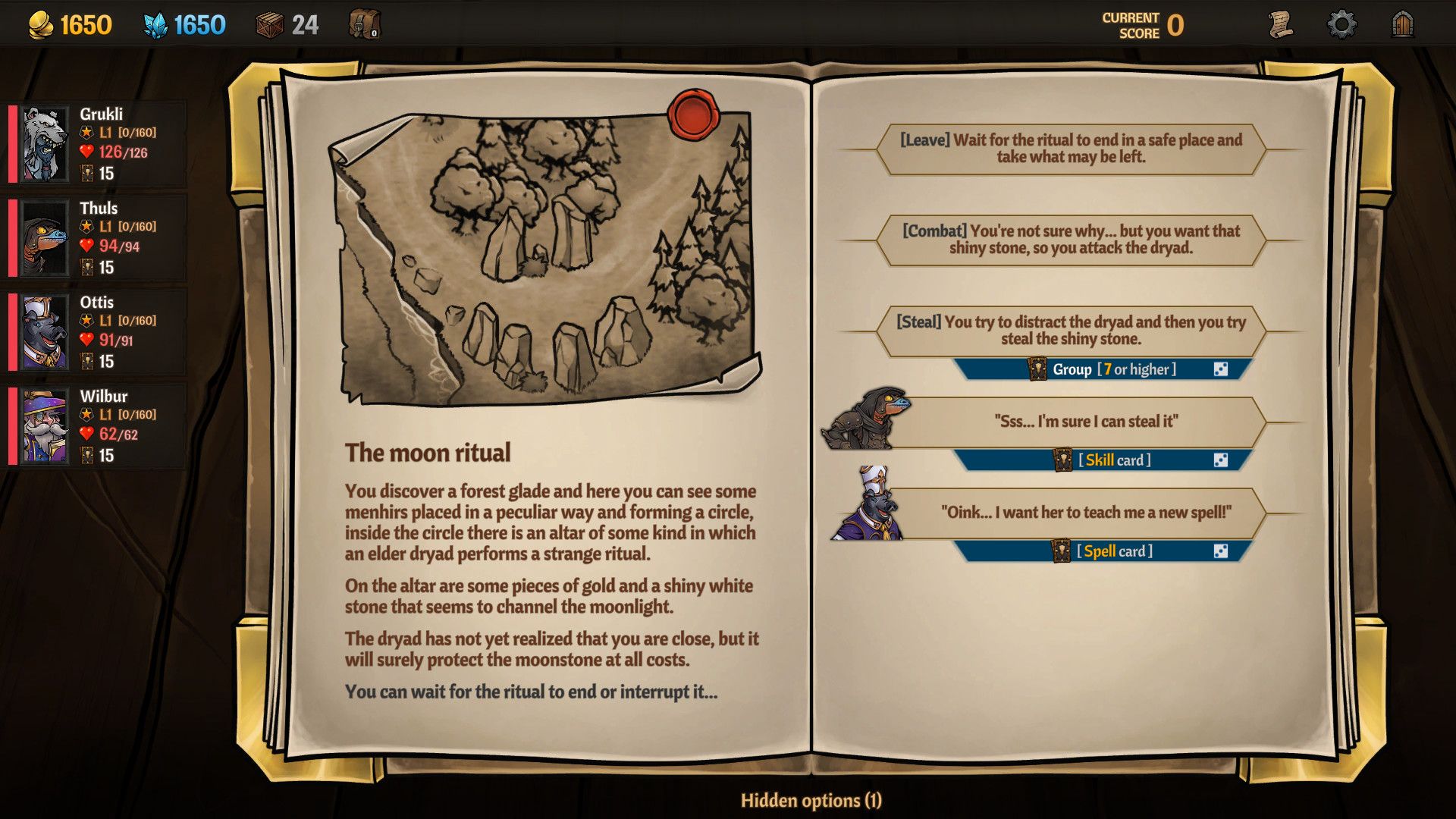
Across the Obelisk would be a home run of a deck builder if the early game grind wasn’t so painful. The first few hours of the game are a grind with almost zero hope of making any serious progression. These runs are all about grinding out enough perks, cards, and currency to start having competitive runs. What makes things worse is runs tend to be long as combat runs at a slow, methodical pace because fights are almost four versus four. Once players can consistently create their first few decks with some semblance of deck synergy, there is a huge power spike. But even then, progression in the game is measured in small steps as later content feels locked behind town upgrades and perk points. The grind is a sign the early game economy is broken and is in need of fixing. These first several hours of the game could really be smoothed out by further lowering the currency costs related to common cards. Another possibility is scrapping the first tier of town upgrades and applying their effects by default.
The user experience is good. It sticks to the standard deck building UI and control scheme. My only complaint is that cards can only be played using drag and drop. Across the Obelisk is an ideal type of game for a laptop, but no click to target makes playing with a trackpad a pain.
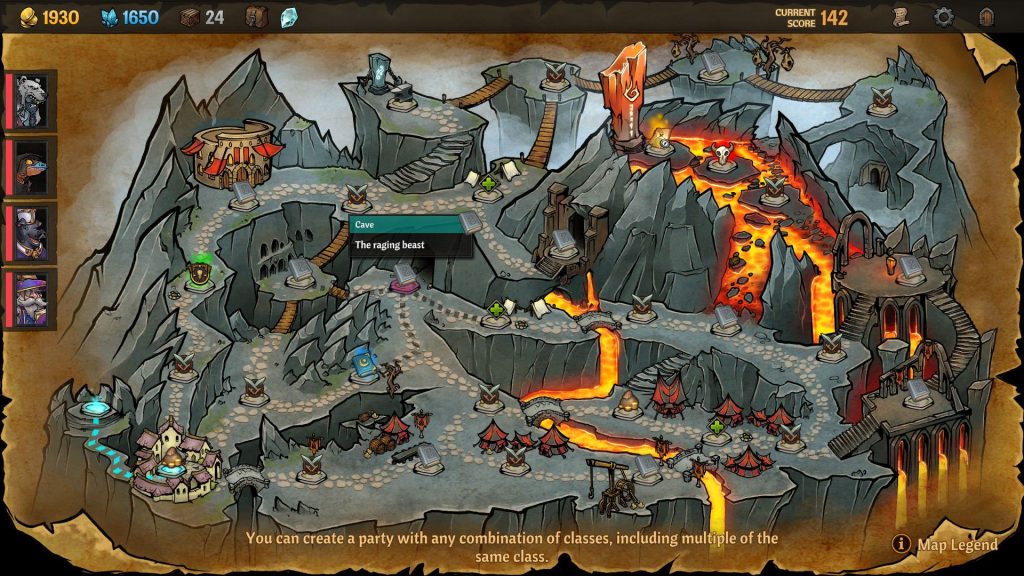
Visuals
The art style is generic fantasy, but the art quality is excellent. The character design is interesting. The enemies actually outshine the player characters who tend to be a little too traditional in comparison. The card art is done well. Each art piece does a good job channeling the card’s functions, and the art is usually unique enough to be able to quickly identify individual cards after a while without needing to read individual text.
Audio
The soundtrack is enjoyable. It’s perfect for a deck builder as it’s just exciting enough to set the right mood without being a distraction. The sound effects are passable. They aren’t the highest of quality, and the ones made with human actors are pretty rough sounding.
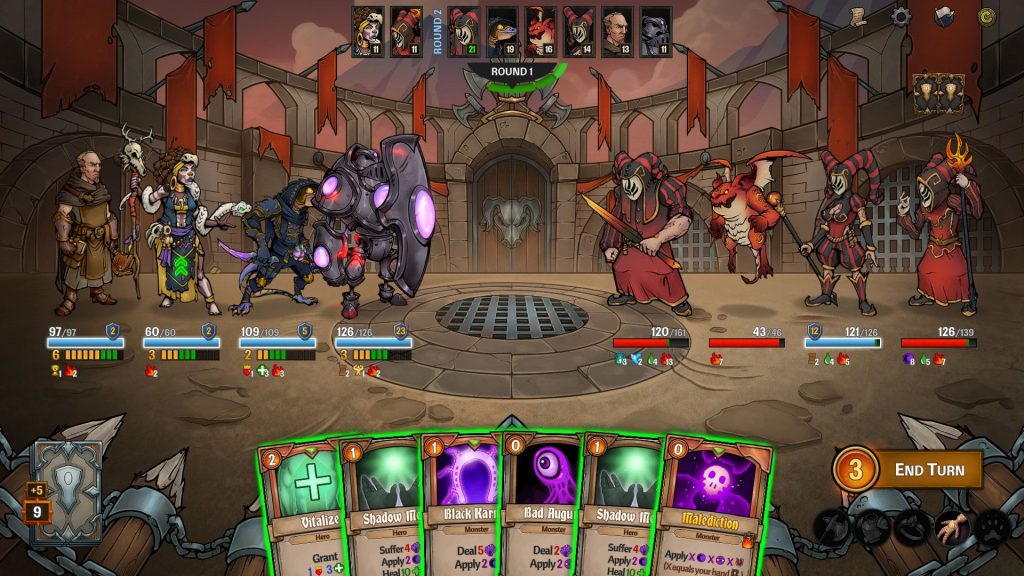
Overall
Across the Obelisk is so close to being one of those legendary deck builders that set the standard for the rest of the genre. It has the right chops: a solid implementation of RPG mechanics, excellent cards, and tons of combo opportunities for cool decks. It’s just a shame that the early game grind just hampers the experience to such a degree. For players who are willing to make that investment of time and energy, Across the Obelisk has a ton of excellent gameplay to offer.
Capsule Computers review guidelines can be found here.


